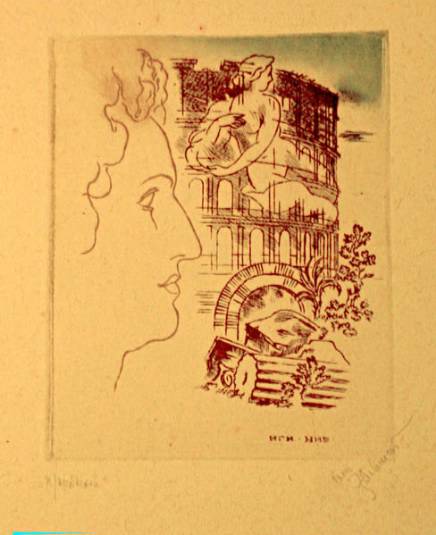Roman Elegies on:
[Wikipedia]
[Google]
[Amazon]
 The ''Roman Elegies'' (originally published under the title ''Erotica Romana'' in
The ''Roman Elegies'' (originally published under the title ''Erotica Romana'' in
''Römische Elegien'' at Projekt Gutenberg
* Poetry by Johann Wolfgang von Goethe 1795 poems German poetry collections {{Poetry-collection-stub
 The ''Roman Elegies'' (originally published under the title ''Erotica Romana'' in
The ''Roman Elegies'' (originally published under the title ''Erotica Romana'' in Germany
Germany, officially the Federal Republic of Germany, is a country in Central Europe. It lies between the Baltic Sea and the North Sea to the north and the Alps to the south. Its sixteen States of Germany, constituent states have a total popu ...
, later ''Römische Elegien'') is a cycle of twenty-four poem
Poetry (from the Greek language, Greek word ''poiesis'', "making") is a form of literature, literary art that uses aesthetics, aesthetic and often rhythmic qualities of language to evoke meaning (linguistics), meanings in addition to, or in ...
s by Johann Wolfgang von Goethe
Johann Wolfgang (von) Goethe (28 August 1749 – 22 March 1832) was a German polymath who is widely regarded as the most influential writer in the German language. His work has had a wide-ranging influence on Western literature, literary, Polit ...
.
They reflect Goethe's Italian Journey
''Italian Journey'' (in the German original: ) is Johann Wolfgang von Goethe's report on his travels to Italy from 1786 to 1788 that was published in 1816 & 1817. The book is based on Goethe's diaries and is smoothed in style, lacks the sponta ...
from 1786 to 1788 and celebrate the sensuality and vigour of Italian
Italian(s) may refer to:
* Anything of, from, or related to the people of Italy over the centuries
** Italians, a Romance ethnic group related to or simply a citizen of the Italian Republic or Italian Kingdom
** Italian language, a Romance languag ...
and Classical culture. Written mainly after his return to Weimar, they contain poems on many sexual themes, and four of them were suppressed from publication during Goethe's lifetime due to fears of censorship
Censorship is the suppression of speech, public communication, or other information. This may be done on the basis that such material is considered objectionable, harmful, sensitive, or "inconvenient". Censorship can be conducted by governmen ...
; they were only published in 1914, together with a large body of the ', written during his second, shorter travel to Italy in 1790. The elegies are also a loving tribute to Goethe's companion, Christiane Vulpius
Johanna Christiana Sophie Vulpius von Goethe (1 June 1765 – 6 June 1816) was the longtime lover and later wife of Johann Wolfgang von Goethe.
Biography
Vulpius spent her childhood in ''Luthergasse'', one of the oldest parts of Weimar. Her pat ...
, whom he met in 1788 on his return from Italy.Rainer Hillenbrand: ''Goethes Römische Elegien als fiktionales Kunstwerk''. Frankfurt a.M. 2003.
References
External links
*''Römische Elegien'' at Projekt Gutenberg
* Poetry by Johann Wolfgang von Goethe 1795 poems German poetry collections {{Poetry-collection-stub